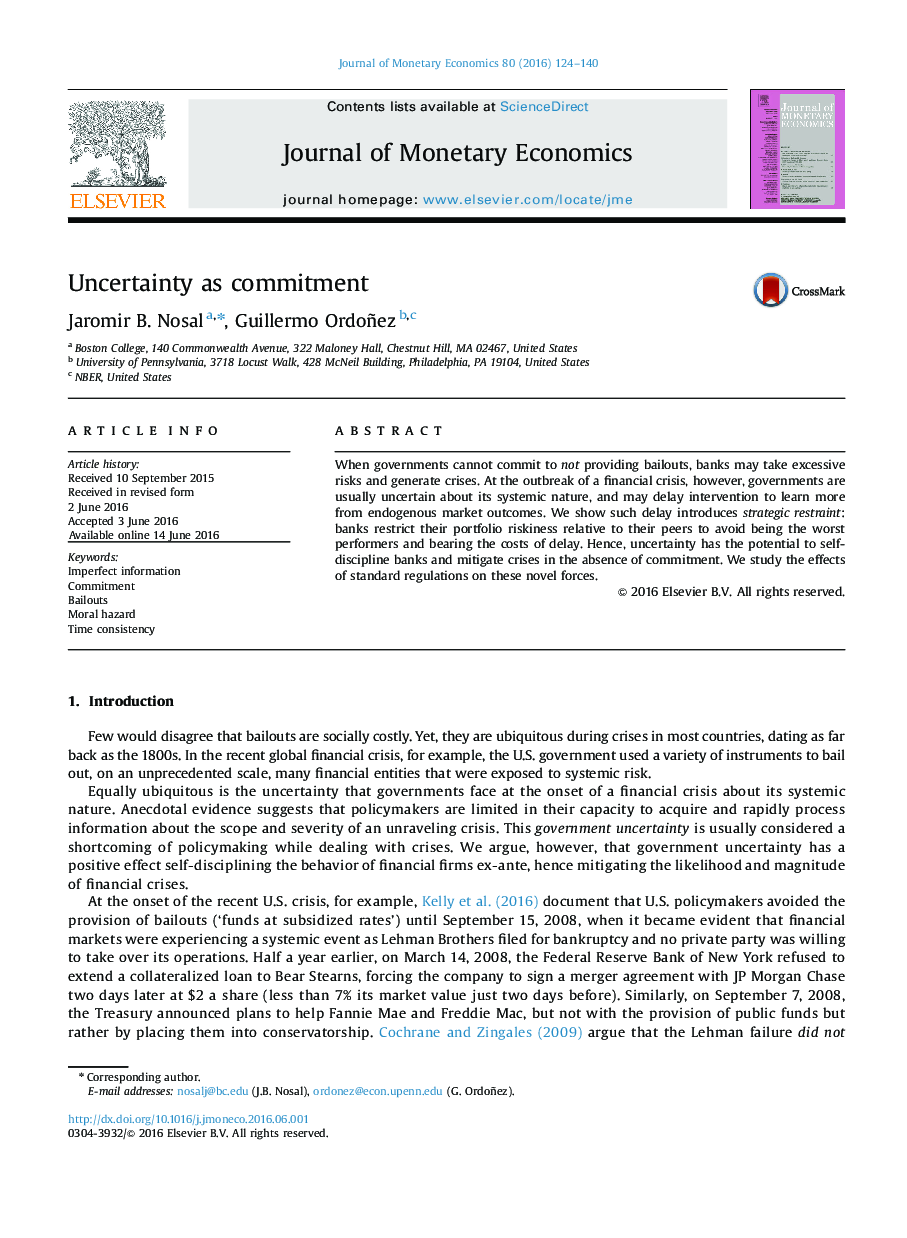| Article ID | Journal | Published Year | Pages | File Type |
|---|---|---|---|---|
| 967551 | Journal of Monetary Economics | 2016 | 17 Pages |
•Study governments׳ provision of bailouts to banks under uncertainty and no commitment.•When governments are uncertain about the systemic nature of distress in financial markets, they are more likely to delay intervention.•Such delay induces banks to restrict their portfolio riskiness relative to their peers.•This self-discipline reduces the likelihood and size of crises.•Study effects of these novel forces on standard and newly proposed regulations.
When governments cannot commit to not providing bailouts, banks may take excessive risks and generate crises. At the outbreak of a financial crisis, however, governments are usually uncertain about its systemic nature, and may delay intervention to learn more from endogenous market outcomes. We show such delay introduces strategic restraint: banks restrict their portfolio riskiness relative to their peers to avoid being the worst performers and bearing the costs of delay. Hence, uncertainty has the potential to self-discipline banks and mitigate crises in the absence of commitment. We study the effects of standard regulations on these novel forces.
